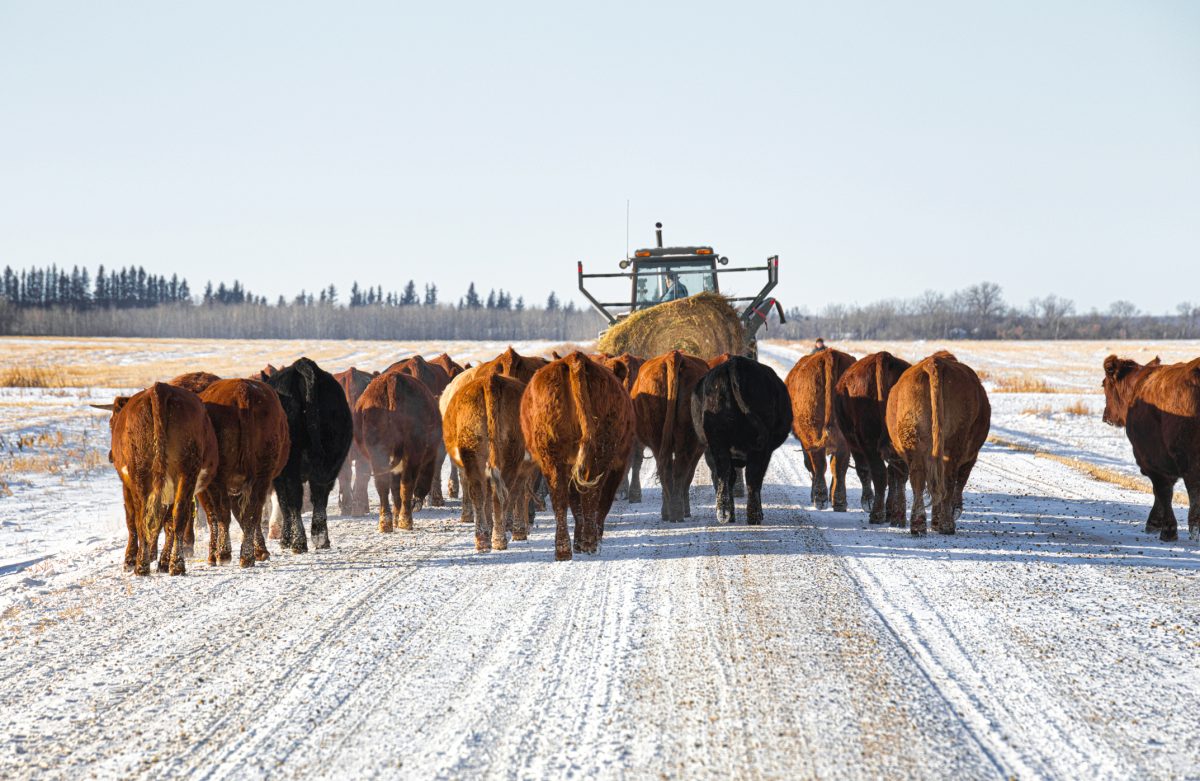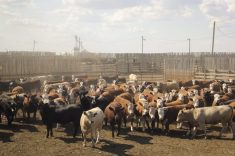Revised, June 13 — Manitoba’s provincial government has launched a three-week multimedia ad campaign urging Ottawa to reconsider its deregulation plans for the Canadian Wheat Board.
Premier Greg Selinger announced the campaign Monday morning in Winnipeg, urging that the right to decide the board’s future be reserved for Prairie farmers — but also warning of economic consequences for Manitoba, both within and outside the provincial capital.
The campaign will include ads on TV and radio and in print media, plus an online petition.
Read Also

U.S. livestock: Cattle sink ahead of semi-annual inventory report
Chicago cattle futures fell on Thursday ahead of the USDA’s semi-annual cattle inventory report. Hog futures were mixed. Most-traded April…
The announcement follows the federal government’s stated plans to strip the CWB of its single marketing desk for Prairie wheat, durum and barley via legislation in time for the beginning of the 2012-13 crop year.
Previous bills from the federal Conservative government calling for an end to the single desk have been derailed by the opposition parties, but are practically guaranteed passage in the Commons after the election of a Tory majority May 2.
“The CWB is important to so many Manitobans, providing grain growers with an effective and reliable way to sell their grains along with employing hundreds of people in Winnipeg,” Selinger said in a release.
The CWB employs over 400 people in Winnipeg and supports 2,000 “indirect” jobs in the city, Selinger said. The board, which last year shipped 600,000 tonnes of wheat through the Port of Churchill, is by far the biggest user of the Hudson Bay port.
“We’re very concerned with the message the federal government is sending to farmers and we won’t just let them pull the plug on the Canadian Wheat Board,” he said.
Selinger called on “all members of the (Manitoba) legislature…to push the federal government to reverse its decision immediately.”
Hugh McFadyen, leader of the provincial opposition Progressive Conservatives, is on record in 2006 as urging Prime Minister Stephen Harper to hold a farmer plebiscite before making any changes to the board’s mandate.
However, in a statement Monday afternoon, McFadyen said the future of the CWB “was decided by Manitobans and Canadians” in last month’s federal election.
“Manitobans need a leader who will look to the future instead of spending taxpayer money on a negative advertising campaign focused on the past,” he said.
McFadyen, whose current caucus hails largely from the province’s rural and agricultural ridings, heads to the polls against Selinger’s NDP government on Oct. 4.
“We run it”
“As farmers, we have the right to determine the future of our marketing agency,” CWB chairman Allen Oberg, who farms at Forestburg, Alta., said in the province’s release Monday. “We pay for the CWB, we run it, we should decide what happens to it.”
Provincial-level campaigning in the CWB debate is not unprecedented. The Manitoba government conducted its own vote among the province’s farmers in 2006 on their level of support for the board’s single desks.
Results from that vote found 62 per cent support for the single barley desk and 69 per cent support for the CWB’s single desk for wheat.
The Alberta government has also previously waded into the CWB debate, supporting deregulation through the “Choice Matters” campaign it launched in 2006 and relaunched in 2010 via the Alberta Grains Council, a provincially-funded advisory agency on grain-related issues.
The Alberta government has said it respects the CWB director election process but has added that only one of the CWB’s 10 electoral districts lies entirely within Alberta borders, therefore CWB elections don’t reflect Alberta growers’ demands for deregulation.
Manitoba, similarly, has just one of 10 CWB electoral districts entirely within the province’s borders.















